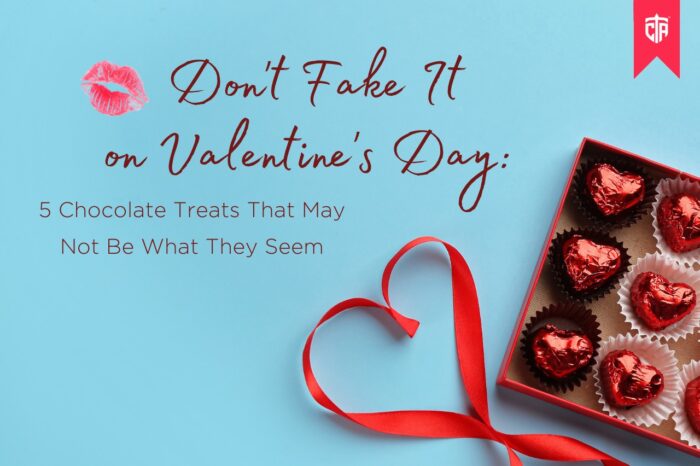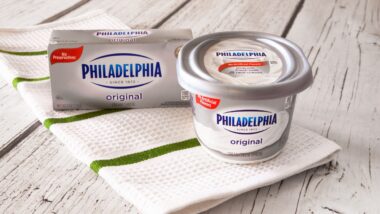Top Class Actions’s website and social media posts use affiliate links. If you make a purchase using such links, we may receive a commission, but it will not result in any additional charges to you. Please review our Affiliate Link Disclosure for more information.

If you’re buying chocolates this Valentine’s Day, make sure you’re getting your love the real deal, and not a class action claim.
Right now, chocolate buyers all over the country are filing for refunds after confectionary giant Godiva agreed to pay $20 million to settle a class action lawsuit alleging it misled consumers into thinking that its chocolate was made in Belgium, when it’s not.
Meanwhile, at least five other brands selling chocolate and fudge are under fire from consumers who say they expected something different when they bought the products.
Godiva ‘Belgium’ Chocolates Actually Made in Pennsylvania
The Godiva class action lawsuit was originally filed in Jan. 2019 by two California chocolate eaters who alleged that they and about 18 million other consumers thought Godiva chocolate was made in Belgium because of labeling that said, “Belgium 1926” and “Assorted Belgian Chocolate Caramels.”
In fact, all of Godiva’s chocolate is actually made in Pennsylvania, the plaintiffs alleged.
They said Godiva was using Belgium’s reputation for producing some of the finest chocolate in the world to dupe consumers into thinking their products come from that country.
A judge dismissed Godiva’s bid to toss the claims in 2020, when it argued that if consumers were duped into thinking the chocolate was made in Belgium based on the “Belgium 1926” label, they would also think that the chocolate had been made in 1926.
Consumers can cash in on the Godiva settlement here.
Oreo’s Not ‘Fudgey Enough’ for My Love
Meanwhile, a New York cookie consumer is taking aim at Mondelēz, alleging its “fudge-covered” Oreo sandwich cookies are not made with real fudge, duping cookie lovers across the country.
In a class action lawsuit, plaintiffs take issue with the company’s Oreo chocolate sandwich cookies, identified as “Fudge Covered” on the packaging.
Instead of containing milk fat, the “fudge” in the Oreo cookies contains lower-priced palm and palm kernel oil and nonfat milk, leaving a “a waxy and oily mouthfeel” and an aftertaste, the lawsuit states.
It even refers to a number of sources for its definition of fudge, including the “authority on fudge,” the Oxford Companion to Sugar and Sweets, several dictionaries, and a “leading textbook” on confectionary science.
Aldi White Fudge Covered Pretzels Don’t Contain Fudge, Class Action Claims
In two similar lawsuits filed in January this year, a pair of consumers alleged both Aldi Inc. and Star Brands North America misleadingly sell white fudge covered pretzel products that don’t actually contain fudge.
Aldi is accused of selling Choceur brand white fudge covered pretzels that are coated with “mainly non-fudge ingredients,” while the covering of Star Brands’ Flipz brand white fudge covered pretzels allegedly “does not contain fudge ingredients.”
Great Value Fudge Mint Cookies Contain No Fudge or ‘Real’ Mint
If you’re shopping at Walmart for your other half this Valentine’s Day, it’s worth knowing that the retailer is currently fighting a class action lawsuit over its Great Value brand Fudge Mint Cookies.
According to one consumer, the cookies lack not only the essential ingredients of fudge, but it also lacks any presence of real mint.
Bimbo Bakeries USA, Inc. is also under the microscope after a class action lawsuit was filed last year alleging it is exaggerating the amount of fudge in its Entenmann’s brand Chocolate Fudge Iced Cake.
The lead plaintiff in that case claims the company misbranded the product by wrongfully suggesting that the Entenmann’s cake is iced with chocolate fudge.
Kellogg’s Frosted Chocolate Fudge Pop-Tarts Don’t Contain Actual Fudge, Class Action Alleges
Meanwhile, plaintiffs in several states are seeking damages after alleging Kellogg’s exaggerates the amount of fudge used in its Frosted Chocolate Fudge Pop-Tarts.
Kellogg’s uses of a chunk of fudge as imagery on the product packaging is misleading consumers when the chocolate Pop-Tarts are not made with butter, but with vegetable oils, the class action alleges.
So this Valentine’s Day, keep in mind that life is like a box of chocolates, you never know what you’re gonna get— sometimes those chocolatey treats might not be exactly what you’re expecting.
Luckily there are laws protecting consumers from the unexpected. Click here to see if you’re eligible to claim up to $25 with proof of purchase thanks to the recent Godiva class action settlement and be sure to sign up for our newsletter to keep an eye on the other chocolatey class action lawsuits mentioned here.
Don’t Miss Out!
Check out our list of Class Action Lawsuits and Class Action Settlements you may qualify to join!
Read About More Class Action Lawsuits & Class Action Settlements:















5 thoughts onDon’t Fake It on Valentine’s Day: 5 Chocolate Treats That May Not Be What They Seem
Add me
Add me
add me
add me
add me